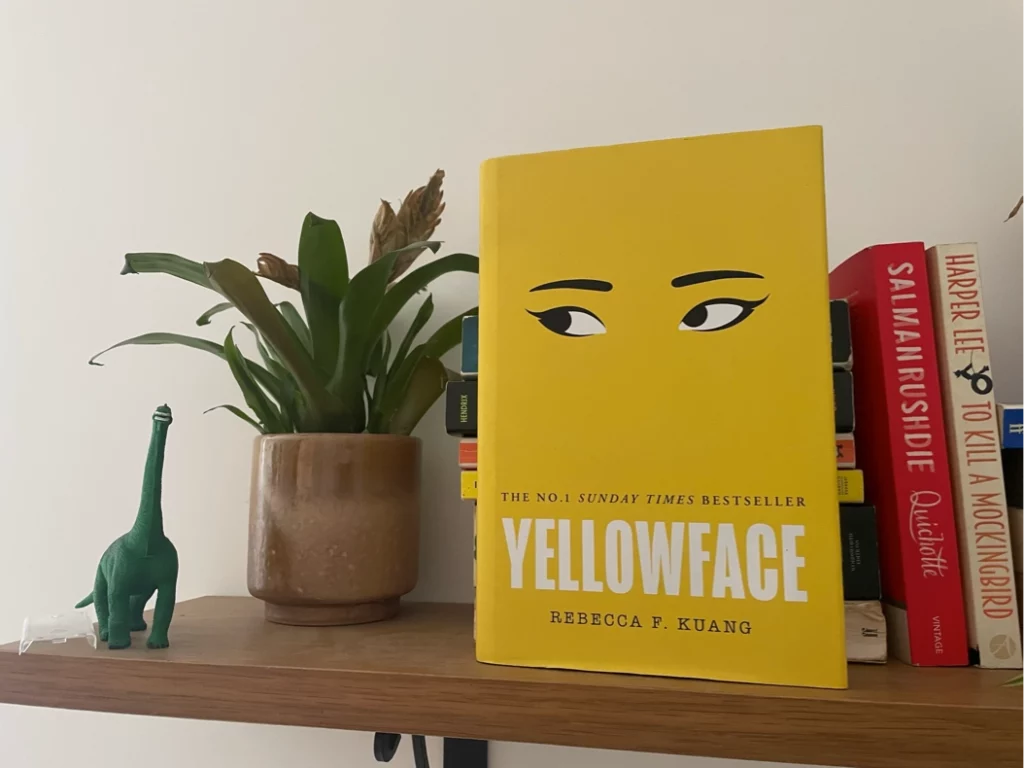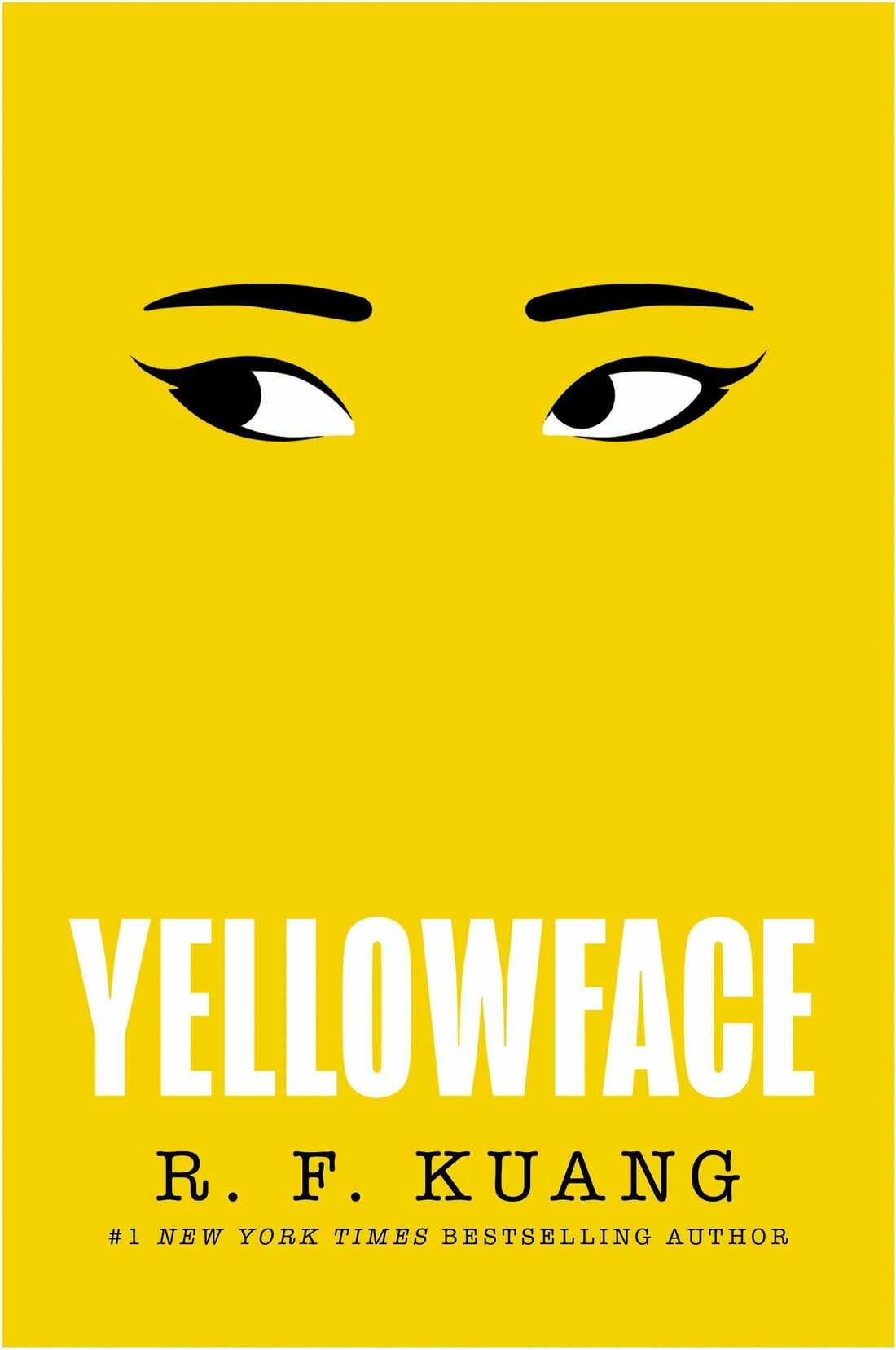In Yellowface, R.F. Kuang presents a narrative that intricately weaves themes of identity, authenticity, and the politics of representation against the backdrop of the contemporary publishing world. This departure from Kuang’s previous fantasy and historical fiction works into the realm of literary fiction demonstrates her versatility as a writer and her willingness to confront uncomfortable truths about the industry she is part of.

Yellowface follows June Hayward, a floundering author with a less-than-stellar debut under her belt, who finds herself in the shadow of her college acquaintance, Athena Liu, a literary star with a bright future. The novel starts with a premise that feels like something out of a thriller: Athena’s untimely death and June’s impulsive decision to steal Athena’s last manuscript.
June’s actions set off a series of events that delve deep into the murky waters of cultural appropriation, identity theft, and the lengths to which one might go to achieve success and recognition.
Kuang masterfully uses this plot to critique the literary world’s obsession with identity and the commodification of authors based on their backgrounds. June’s transformation into Juniper Song, complete with a deliberately ambiguous author photo to suggest an Asian heritage she doesn’t possess, is a scathing commentary on the industry’s push for diversity that often feels more like tokenism than a genuine effort to broaden the spectrum of voices and stories.
The novel’s title itself, Yellowface, is a bold choice, directly referencing the practice of white actors portraying Asian characters, a metaphor extended to the literary sphere where June’s act of publishing under an Asian pseudonym becomes a literal embodiment of yellowface. This act of appropriation is not just a plot device; it serves as a mirror reflecting the real-world issues of racial identity and authenticity in storytelling, questioning who has the right to tell certain stories.
June’s journey through the novel is not just a descent into moral ambiguity; it is also a reflection on loneliness, desperation, and the search for identity in a world that often values superficial markers of diversity over genuine understanding and respect for different cultures. The narrative doesn’t shy away from the consequences of June’s actions, both personal and professional, offering a complex exploration of guilt, redemption, and the quest for forgiveness in an increasingly polarized society.

Yellowface is a narrative labyrinth, where each twist and turn forces the reader to confront their assumptions about culture, race, and the ethics of storytelling. Kuang does not offer easy answers but instead presents a multi-faceted exploration of the intersections between personal ambition and cultural identity, all while maintaining a razor-sharp critique of the publishing industry’s complicity in maintaining the status quo of representation and diversity.
The novel’s impact lies in its ability to hold a mirror up to the readers and the industry, challenging both to reflect on the complexities of identity in the stories we tell and consume. Yellowface stands as a testament to Kuang’s growth as a storyteller, one who is unafraid to navigate the difficult conversations about race, representation, and the power dynamics at play in the creation and consumption of literature. Through Yellowface, Kuang asserts herself not just as a storyteller but as a critical voice in the ongoing dialogue about diversity and representation in literature, making it a crucial read for anyone invested in the future of storytelling.









